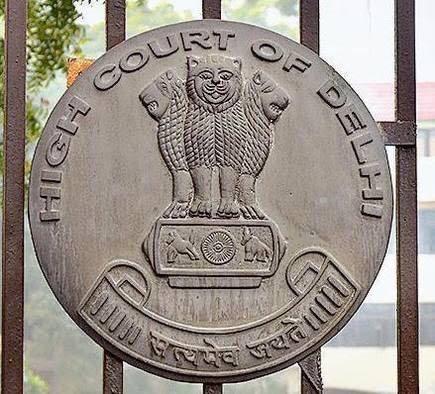The Delhi High Court has set aside the rejection of candidature of successful DJS candidate ‘Bhavya Nain’ suffering from ‘bipolar affective disorder’ by Registrar General while holding that persons with disability cannot be discriminated against in matter relating to employment.
A Division Bench of High Court presided by Justice Vipin Sanghi and Justice Sanjeev Narula allowed the writ petition on 08.05.2020 filed by Bhavya Nain and observed that “Once the posts are advertised – and seats are reserved for, inter alia, persons with mental illness, it is not open to the respondent to deny the petitioner reservation under Rights of Persons with Disabilities Act, 2016, merely on the basis of an opinion or belief entertained by it – that the petitioner would not be able to discharge his duties as a Judicial Officer due to his mental illness.”
The petitioner cleared the mains examination of Delhi Judicial Services-2018 under the category of Persons with Disabilities (PwD) was rejected by the Registrar General of High Court on account of his mental disability not being found to be permanent in nature. The petitioner is the only selected candidates called upon to appear for an Interview/Viva-Voce test to be held on 13.05.2019, against the two (2) seats reserved for Persons having autism, intellectual disability, specific learning disability, mental illness and multiple disabilities as mentioned under clauses (a) to (d) of Section 34(1) of the Rights of Persons with Disabilities Act, 2016 (RPwD Act), including deaf-blindness.
The Disability Certificate issued by the Department of Psychiatry, AIIMS, certified the petitioner of having the disability i.e. Mental Illness – Bipolar Affective Disorder, i.e., BPAD, to the extent of 45%, and stated that his condition is “currently in remission”. Further, the said certificate states that the condition of the petitioner is “likely to improve”, the certificate issued on 12.12.2018 is valid for a period of 5 years, i.e. till 12.12.2023.
The issue before the court that whether the petitioner – who is certified to have been suffering from the mental illness i.e. BPAD – which is in remission and is likely to improve, is entitled to the benefit of Reservation provided to PwD under the RPwD Act.
The court observed that Bipolar Affective Disorder (BPAD) is a serious lifelong and permanent incurable mental illness that can, at best, be suppressed with medications and treatment, but cannot be cured. There is a high rate of recurrence. People who suffer from Bipolar Disorder can live a healthy life, albeit they will have to take treatment all their lives. The petitioner has been suffering from Bipolar Affective Disorder since 2010,
Moreover, the certificate certifies the extent of mental illness/ disability at 45% and the certificate is valid for 5 years. Therefore, as per medical opinions, the extent of disability of the petitioner – who is under remission, is not likely to fall below 40% in the period of 5 years for which the certificate is valid. The respondents have no basis to assume that the disability would ever fall below 40% just because it is in remission and the petitioner’s condition is likely to improve. The point is that while suffering from the benchmark disability of more than the specified limit, the petitioner has successfully competed with other PwD candidates. He is permanently disabled. He cannot be denied reservation on an assumed basis, as done by the respondent.
The High Court allows the petitioner’s writ petition and set aside the notice dated 21.5.2019 insofar as it declares the petitioner’s disability to be not permanent.
The Division Bench observed that “We accordingly direct the respondent to declare the petitioner as selected to the Delhi Judicial Service without any further delay, since, undisputedly, he is the only qualified candidate in the ‘mental illness’ category. Upon his appointment, the petitioner would retain his notional seniority along with his other batchmates and he would be deemed to have joined his post along with his other batchmates, though he would not be entitled to any back wages. It goes without saying that the respondent shall issue necessary orders regarding the petitioner’s Induction training for Judicial Officers.”
-India Legal Bureau


